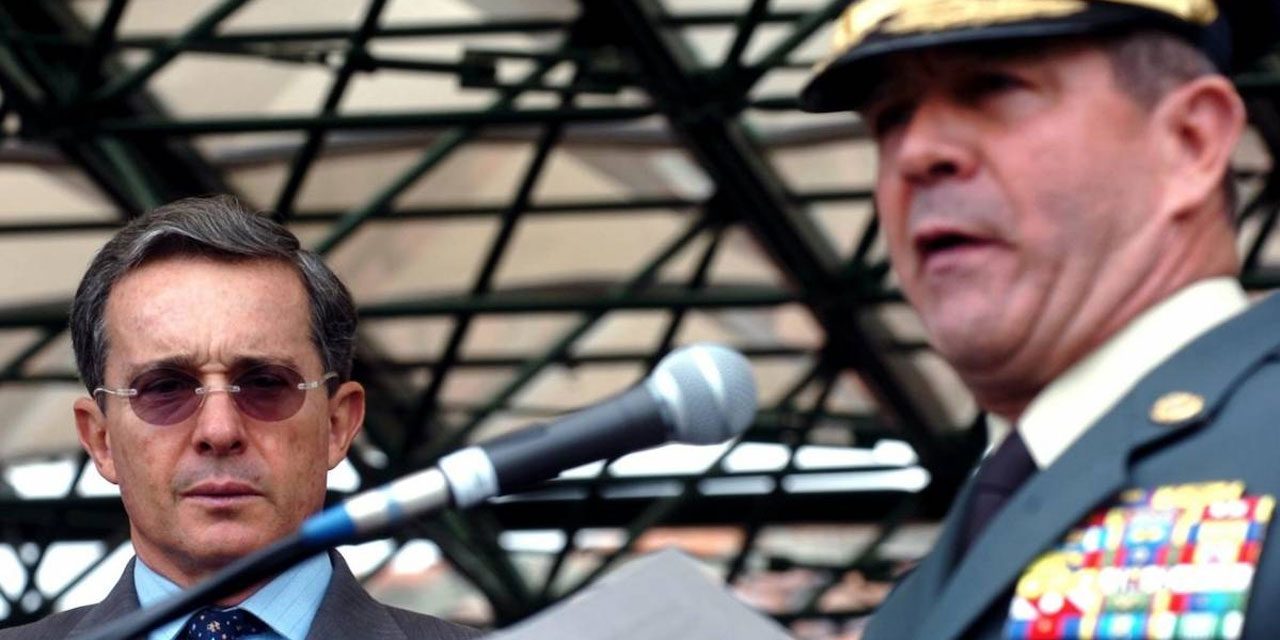Colombia’s war crimes tribunal said Thursday it will consider the expulsion of retired General Mario Montoya after the former army chief’s alleged elitism infuriated victims.
The hearing of Montoya, who allegedly masterminded the mass execution of civilians to inflate army results, was supposed to last until Friday, but cut short by the magistrates of the Special Jurisdiction for Peace (JEP) who said they had no more questions.
In a press release, the court said it would consider victims’ requests to expel the general from the transitional justice system that shields him from a possible 40-year prison sentence.
Lower-class soldiers don’t know how to use forks and knives?
According to newspaper El Espectador, three victims confirmed that the decision to end the hearings was made after Montoya blamed the increase in executions under his command because rank and file soldiers are of lower-class origins.
The general said lower-class soldiers were so ignorant they had to be taught how to use a fork and knife, according to the victims who were present at the hearing.
Anonymous victim
The comment triggered one victim to shout “son of a bitch!” at the retired general after which the session was adjourned and the victim had to be removed from the courtroom.
Multiple victims told the newspaper they too were indignant about the alleged war criminal’s allegedly blatant disrespect.
Victim Soraida Isabel Muñoz
According to the victims, the magistrates resumed the hearing, but ended it after it became clear that the general, who has been accused by 11 subordinates of ordering the killing of civilians, was not going to cooperate.
Victims want Mr. Buckets of Blood’s benefits revoked
The victims said hearing Montoya, a close ally of former President Alvaro Uribe, was “a waste of time” and demanded the JEP consider expelling the general, putting him at risk of a 40-year prison sentence.
Victim representatives
The court responded that “the Chamber will consider the victims’ request to activate the adversarial proceedings and send Montoya to the Investigation and Prosecution Unit or to exclude the appellant from jurisdiction.”
The court’s dilemmas
Montoya is accused of being behind some of the armed conflict’s most gruesome war crimes and has reluctantly vowed to tell the truth. In exchange, he is exempt of any prison sentence and shielded from extradition.
The general, however, appears to believe he can contribute to the truth on his own terms instead of those of the transitional justice system that require him to tell the truth especially if this incriminates him.
This puts the court before a major dilemma as its ultimate goal is to seek the truth.
If the court decides to expel Montoya, he risks a 40-year prison sentence over his alleged role in terrorism, the mass killing of civilians, and ties to drug traffickers and paramilitary war lords.
If the general is expelled, the court will lose any possibility to hear the version of a key player in the degeneration of the conflict to the point it victimized almost 9 million people.
Victims have been skeptical about Montoya’s commitment to the truth from the beginning. While many of the victims say that they primarily want to know the truth, few will object to him rotting in prison for the rest of his life.




